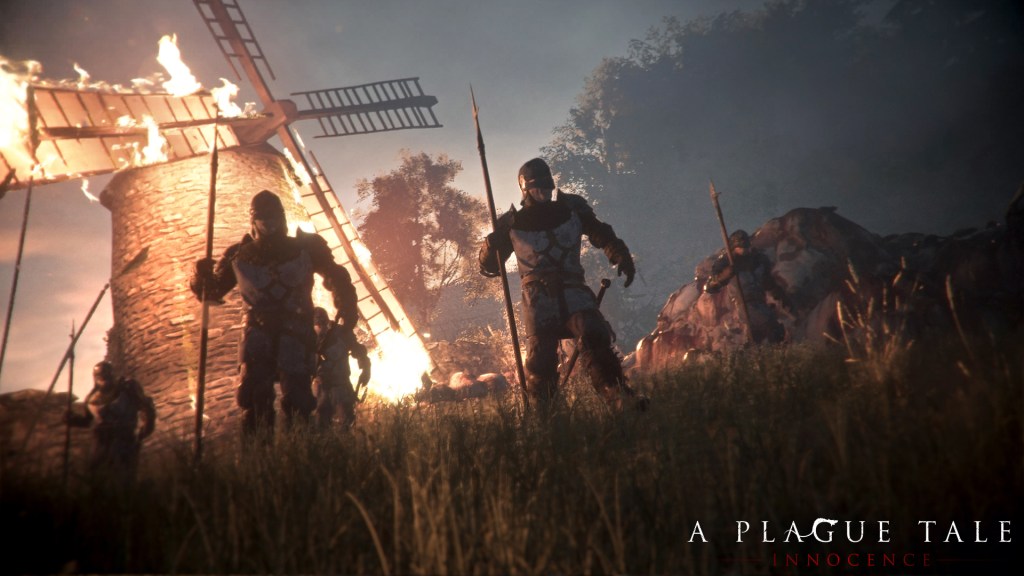With the ever-growing discussion surrounding crunch in the video game industry, hearing various takes from the developers themselves is quite fascinating. That’s why PlayStation LifeStyle initiated a discussion on that very topic when we got to talk with Asobo Studio, the developers of the upcoming narrative adventure game, A Plague Tale: Innocence. Specifically, we spoke with Creative Director David Dedeine about the project. He had a lot to say about the topic of crunch—something that is very nuanced and not easily summed up with a simple thought or idea.
When asked directly about how Asobo Studio handles crunch, Dedeine had this to say:
There is an alchemy that makes everything [happen] and suddenly you find the right solution. It comes from pressure, so we need deadlines. At some point you realize that you can do better and [developers] want to do crunch. We are not doing milk or tires—we are doing something we care for and when you have a love for the thing you’re doing [people work hard]. Obviously, we stay within the law, because in France, the law is very protective of that.
We know it’s not a good thing to start [crunch] too early, because you basically burn the team. It’s the worst thing that could happen. You need to keep the team in good shape as long as possible, but when the straight line is there, we push the crunch button. Only [during] like, the last three months. It’s very limited and very much at the end.
You know, the family is not happy, the wife is not happy, the kids aren’t happy. And we have to be honest that it’s not a lovely story all the time. But at the same time, believe in ourselves as artists. At some point, you just want to do your best for the objective you’re doing. I see it as a natural thing at some point, as long as you stay in the law.
We then asked him if he thought game development is possible without crunch. Dedeine replied:
It’s hard to say that because I know how that could be read, you know? I’m not this guy who wants to be blind to the problem. And like I said, we’ve experienced that in the past and we didn’t wait for the rest of the world or the government to talk about it. We realized it’s not a good thing, in general. But at a specific point of the project, I believe there is magic happening. Is it impossible [to develop games without crunch]? No. Will the team and the public enjoy the product more? No, they will not. It’s not because we will not do crunch that games will be better.
Think about the writers. Do you think a writer can only work on their book seven hours a day? No, if you’re a writer I can guarantee those guys are actually writing at 2 in the morning. And sometimes it’s completely not reasonable. As most of the team is based on artists—in the sound, music, in the dialogue, in the game design, all of that—at some point you just want to make the best thing and you don’t think about the time.
It’s best to be paid for your crunch time, [though], which is different. Okay, people work more but they are paid more. And sometimes twice [what they normally get paid]. It’s also an investment for the company. So as soon as we are in good respect with the team and the law, and you’re working in a positive ecosystem [it can work out].
It also depends on your definition of crunch. If crunch is unpaid all the time and [destructive], I’m not for it. [Laughs] If it’s paid, and in most cases, people volunteer to do it, it’s normal and [within] the law. So there is not even a discussion in this case.
It’s clear that the idea of crunch is not easy to digest. On one hand, developers probably want to go home to their families and have a healthy work/life balance. But on the other, passion seems to overtake the way developers work. Sometimes, it seems that members of a team may willingly put in extra time, which can turn into long hours at the office and lead to unhealthy work practices.
In the case of A Plague Tale: Innocence, there have been no reports of unhealthy work practices, especially since French law is strict about this sort of thing. This is vastly different than the work practices of a company like BioWare and a project like Anthem, which had quite the troubled development and a lot of crunch.
While it’s easy to expect developers to just stop crunching, speaking with Dedeine was quite telling. It’s a complicated issue that requires a complicated solution.




